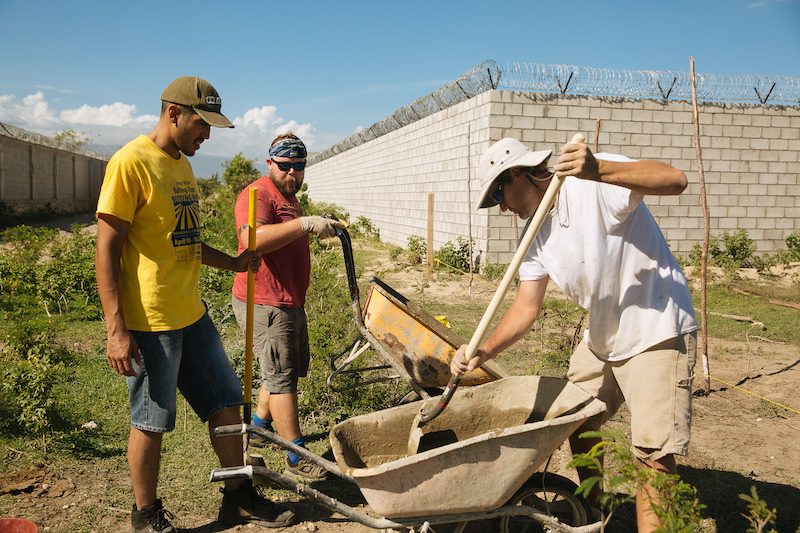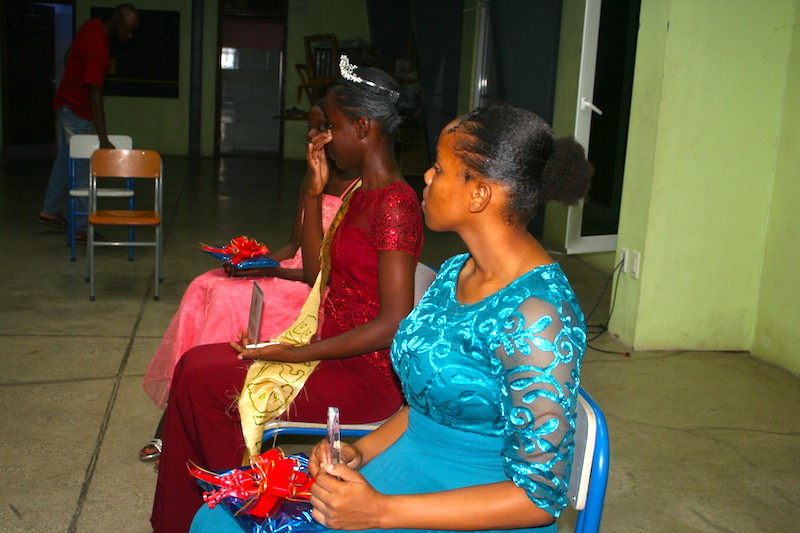Written by Beth Guckenberger, Back2Back Ministries Co-Director
The seed of Back2Back started on a short-term mission trip. It was there God captured our attention; Todd and I were never the same. It was the summer of 1997, and eight days after arriving in Monterrey, we hosted our first team. It seems crazy now to think about it, but mission teams have truly been a part of this story from the beginning.
Over the years, we’ve learned a lot about how to do them well. We don’t transport anyone in the back of a pickup truck anymore, we make sure mission teams are trauma-informed, and working alongside full-time caregivers, reinforcing their work. Sometimes you’ll hear experts who want to discourage “mission tourism” and who highlight the consequences of poorly run trips. And I agree. If they’re not done well, the consequences can be tragic. If they’re done with integrity, collaboration, and wisdom, the kingdom math ends up being 1+1 equals more than 2!
As a case study, consider the 475 students from Kings High School in Cincinnati, Ohio who have traveled since 2016 over President’s Day weekend to Monterrey, Mexico. When the trip is announced, it is full that same day – the ripple effect of students hearing from other students about the power of the trip.
When the team arrives, it’s good for the staff; 50 students join in on what the staff on the ground are already doing. This propels the work forward with financial and human capital. By the end of the weekend, staff have advanced projects, hosted play-with-a-purpose activities, shared life with people who encourage them, and now have advocates returning home to tell their stories.
It’s good for the team; in this case, students make life-changing decisions – about their future, their bad boyfriends or girlfriends, and their use of technology. They come home, appreciating their families and the opportunity before them. Parents see their children in a new light and staff/faculty have a chance to share their lives and faith in natural ways. College essays are written, and teams use their new trauma-informed tools in their everyday lives.
It’s good for the children, youth and families we serve; Dr. Curt Thompson says, “every child is born into the world, looking for someone, looking for them… and they never stop.” For these days, a new set of eyes are looking at them, delighting in their art, their soccer skills, and their curiosity. The mission trip guests become vested in their well-being, then return home as supporters, praying now with specificity. They raise money for their schools; the children, youth, and families realize they are not alone, that there’s a whole network of people who believe in them and cheering on their next steps.
It’s good for the community when they return; now aware of what they have to offer, they unleash talent, passion, and resources in their local community, local church, and their own families. I’ve heard thousands of testimonies of people coming home and volunteering, or fostering children, or even starting non-profits. It’s always been a sparkplug – an adventure that starts something in our own lives, reminding us to build a kingdom that’s not our own.
For the Kings students, they’ve gone on to write scholarship essays, choose majors, and volunteer in their communities. They’ve encouraged younger siblings to go and raised money for others to have the chance. Some have made faith decisions and others won’t fully realize how that weekend shaped their lives until later.
Jesus told the woman at the well to “go and tell” in John 4 and Phillip was sent to Samaria in Acts 8. Short-term trips need to be done well, they need to fit within a larger context, they need to be led by nationals who can say what it is they really need. And it is a biblical response to a heart broken for kingdom things. It will always be a strategy we employ, until every child is known & loved.

